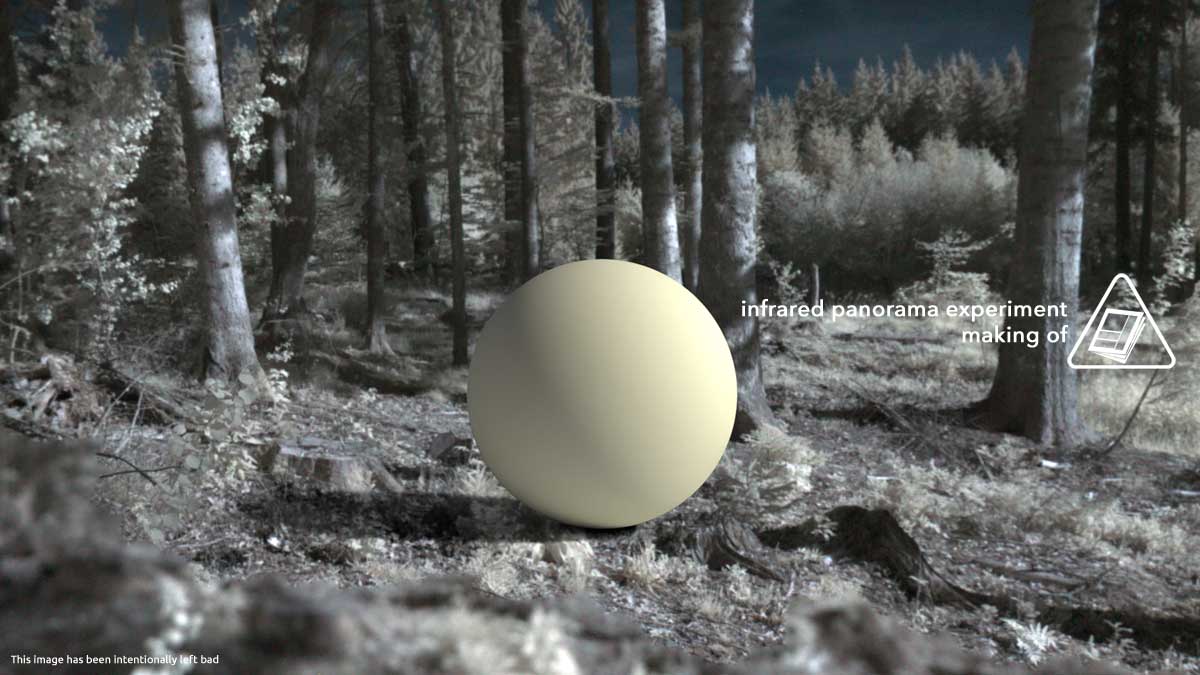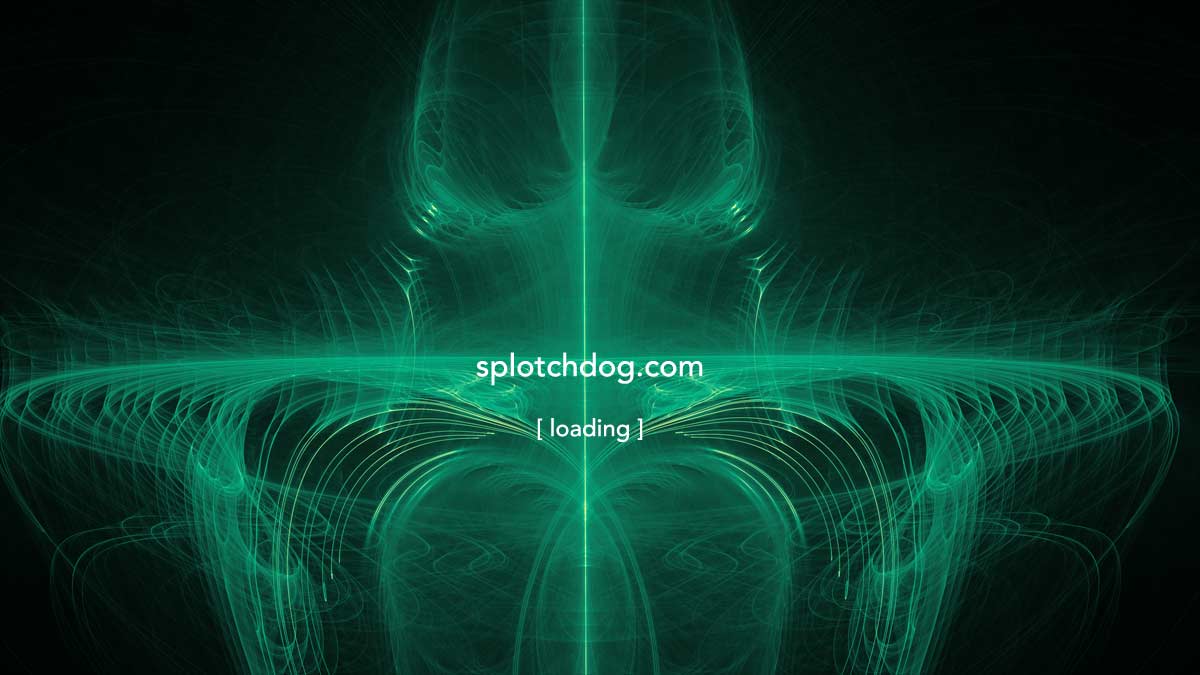|

Ok, this in planing, for a long time but since it needed several preparation steps, and I wanted to shoot it with good vegetation and weather, and coalign these with my free time, it took way longer.
This is a rundown of the creation process of a infrared panorama wich can be seen and downloaded here: pano_infrared.
First it started with the diy full spectrum conversion of my old trusty D40. My first dslr wich I still like and might even would reorder if it it got internal extended bracketing and live view. You can read about the conversion experiments here: article_fullspectrum.
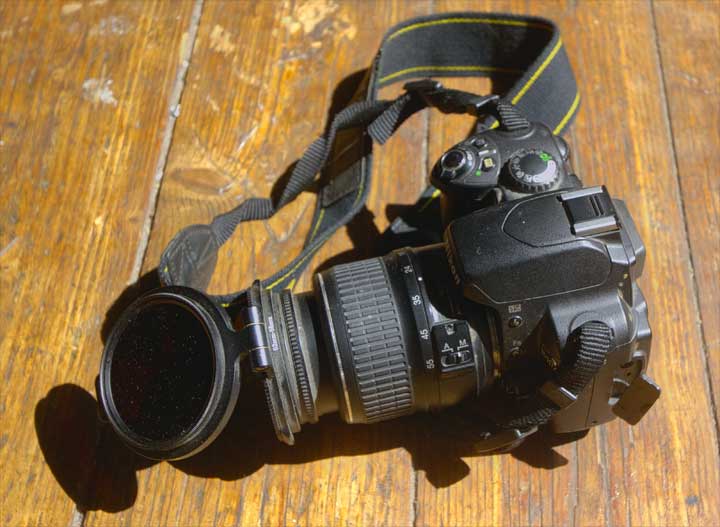
The camera, with a swing-in visible light filter: Depending on the strength / focusing you need to quickly
see the unfiltered version
The next step was to implement bracketing. For this I used a Raspberry Pi and wrote an very quickly hacked together application wich uses wxwidgets and libgphoto. The app does only do one thing: Shoot a bracketed sequence after you press a button on the touchscreen. I might have to add some additional controls in the next step, like exposure start time and bracket size.But on the other side I was glad I don't have to fiddle with the controls onsite.
The whole thing is powered by a power bank, and attached together by velcro.
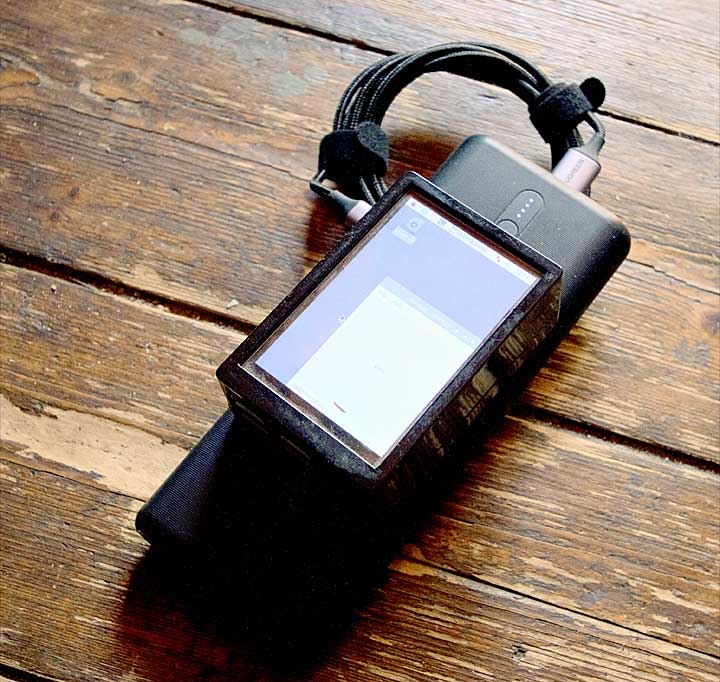
The Raspberry Pi with the power bank
The shooting
The shooting was a disaster: Everything went wrong: Starting with the loss of the battery compartment lid (I used a twig to keep the battery in place). The panorama head beeing not registering the indexing steps correctly (I used my old one, had buyers remorse in buying a new one, but now using the previous one,again, I'm glad I invested into it,) The camera and software reacting quirky with the pi (Was an autofocus issue with the filter in place)). The lens loosing focus due to the filter package weight, and last but not least, having a too far away bracketing step size wich resulted in only one correctly exposed image (plus the one I used the nd filter): So basically as a result I got an ldr or mdr panorama at the end.
(Not to mention, since the program directly downloads the images to the pi and the d40 does not have liveview, I had no chance previewing the shoot)
Luckily the forrest ants, wich had a nest nearby, did not start an attack...wich I'm still surprised.
And yes, I should have made an test shoot in the garden before I get out in the woods, but, hey where is the fun when everything runs smoothly
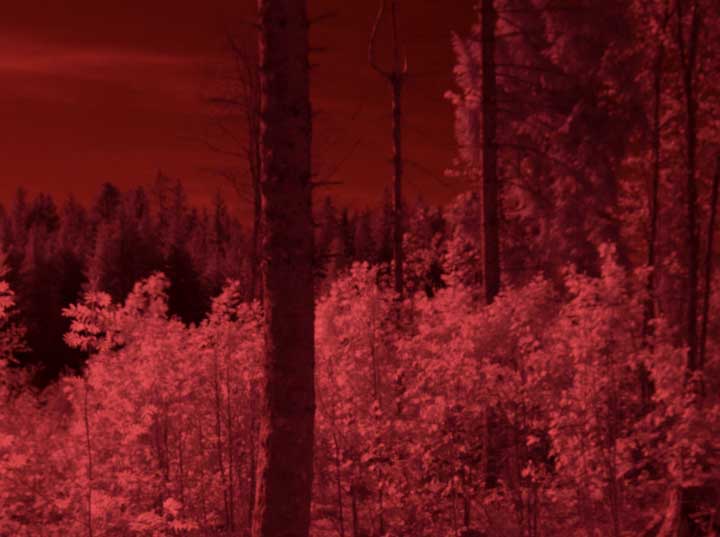
The raw output of the camera before post processing
Post Processing
For post processing I used PTGui for stitching / masking and Affinity Photo clearing out the ground patch. Then I put the result into Blackmagic Fusion 9.0 and used a custom plugin for channel swap, and color temperature correction. (I'll release it in the comming days, but be aware that it is experimental, and only for the specific task in mind)
Then a few slight changes to the color and voila the first black forrest semi-hdri infrared panorama I'm aware of.

The fusion setup, with my own plugin. Maybe I add some other features, maybe not
Whars next
I want to shoot a real hdri infrared panorama in future !
And of course I want to do a full spectrum one...meaning without the visible light filter, wich produces some nice variations But things have to wait...hopefully not again 3.5 years wich this whole project is in the making.
|
